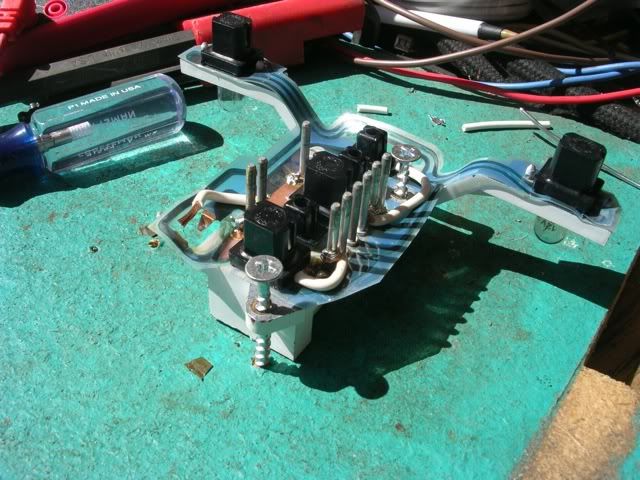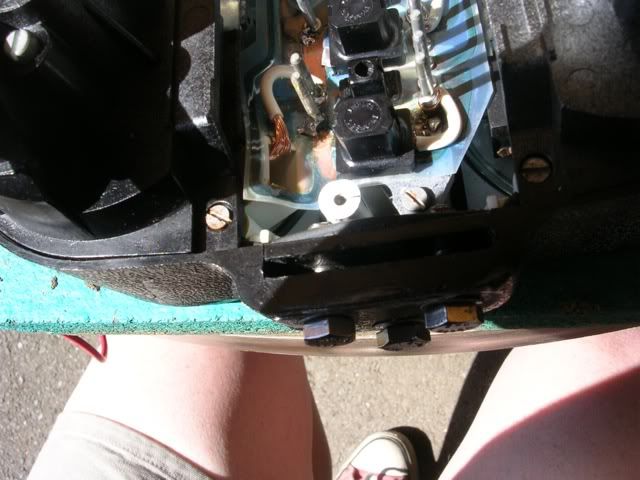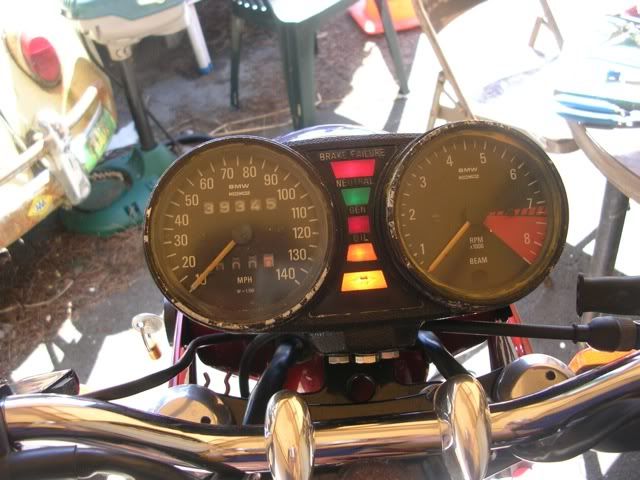No-name carb top:
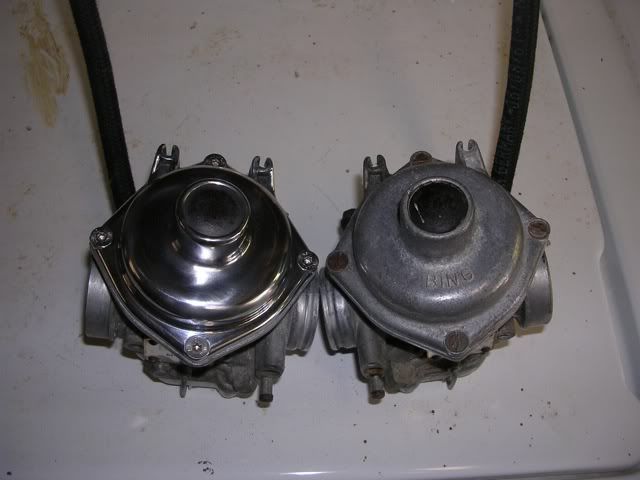
A side view:
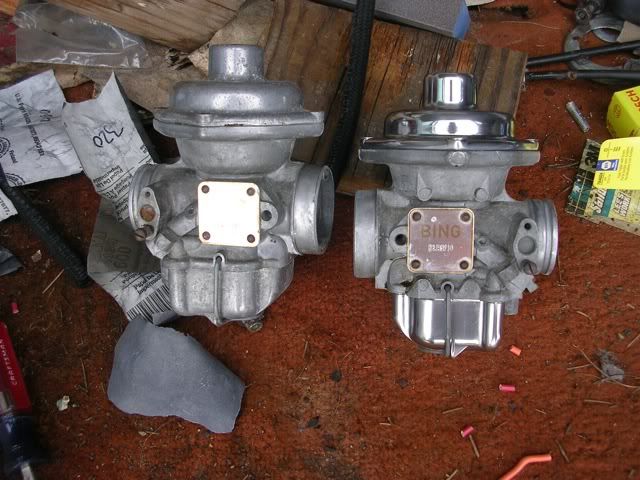
And the view we'll all see when the bike goes down:
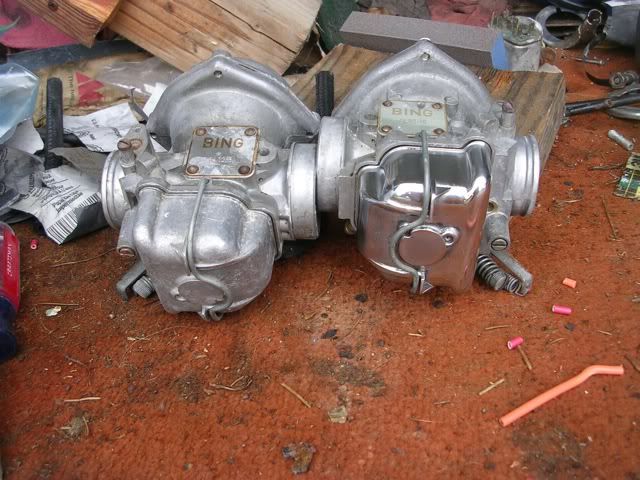
Tomorrow it's back to dicking about with electricity, hoping to make the dash lights function.



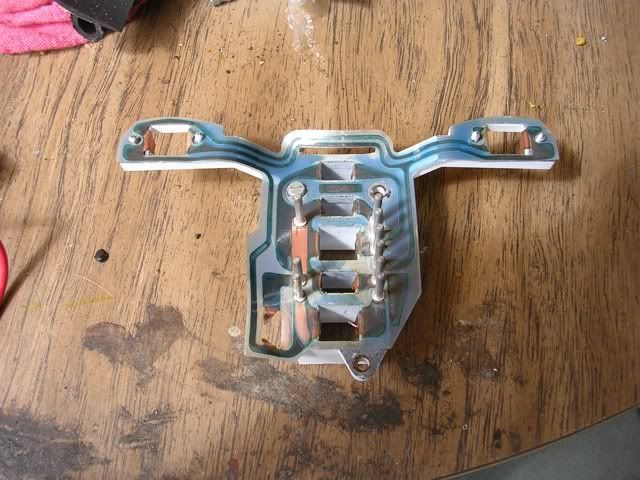
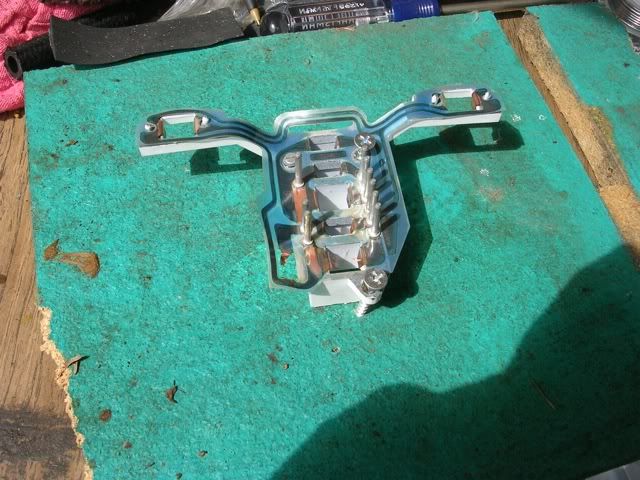
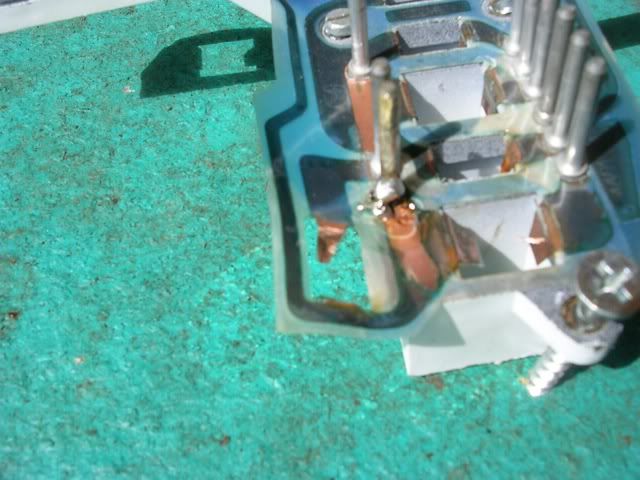
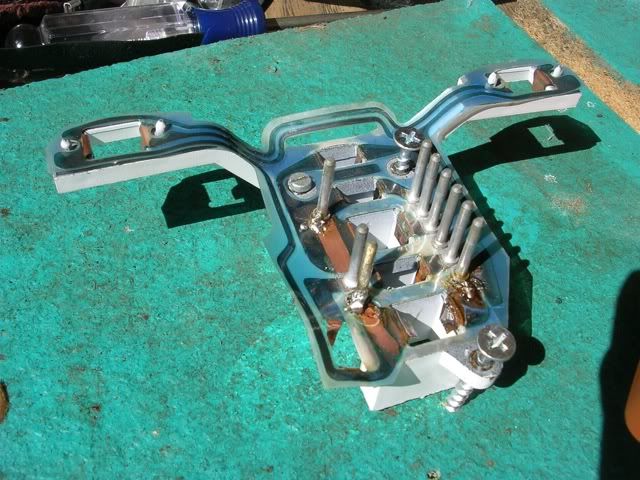
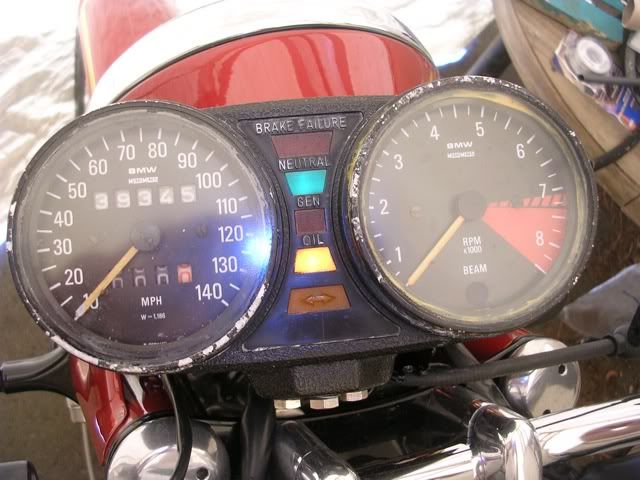
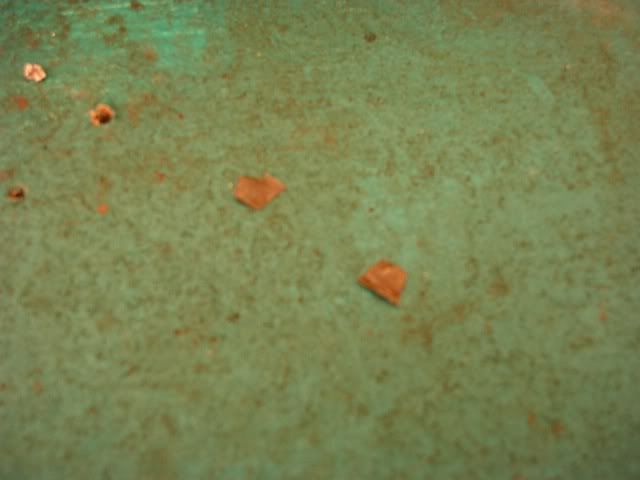
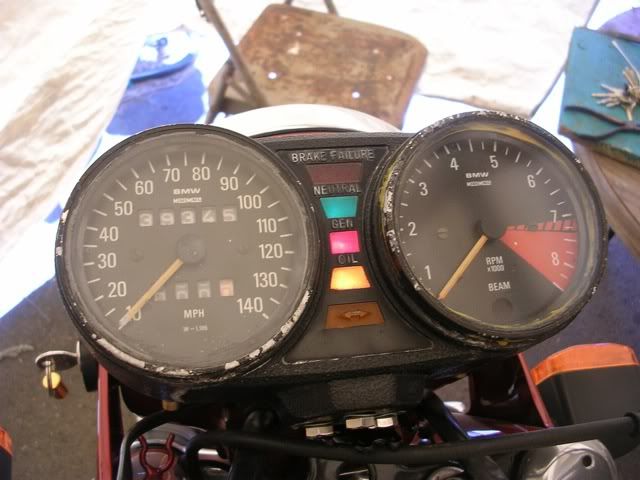
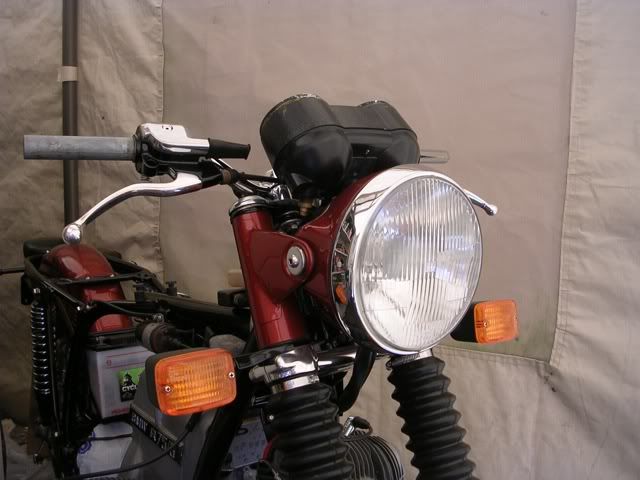
Funny you should ask! I have the info right below:Chuey wrote:Melville, is there a general scheme of how those pins work?
Some of these have their operative switch closing to ground--brake fluid level, neutral, generator, and oil pressure. Those share a "hot" input. Others have their switch on the hot side--high beam, turn signal, and instrument lights. They share a ground.Chuey wrote:What I'm asking is, is one side ground and one side power? Be gentle with me. I don't do this kind of thing often. People who work intuitively with electrical stuff often use words that don't make sense for me. It is not possible to offend my by making it simple.
For instance, the term "open circuit" means a short, I think, but I don't quite understand it. Some other terms are right at the edge of what I can comprehend at this point.
melville, last October wrote:Thanks. I ended up opening the instrument pod myself anyway, and using that and my Haynes wiring diagram I come up with:mefrank11 wrote:I have a 1975 r75/6 If you tell what you want to know if you tell me how to test it . You may just need the flex circuit thats in there . I think thats all there is in there for electric Frankmelville wrote:On to the next problem--does anyone out there have a reference for which pin does what on a 1975 /6? From the wiring diagram in my Haynes, some of these have the operative switch on the hot side and some on the ground side. I appear to have power at the plug but it may be getting lost in the instrument pod.
1. Hot for turn signals
2. Ground for oil pressure light
3. Hot for instrument lights
4. Ground for charge light
5. Ground for brake fluid light
6. Ground for neutral switch
7. Ground for high beam, dash lights, turn signals
8. Hot for high beam indicator
10. No connection in the pod
12. Hot for brake fluid, neutral, charge, and oil pressure
I'm playing with the pod and a multimeter looking for continuity today but I'm also distracted by football and later by the Giants going for #2 against the Phillies. Over the next week I'll check for the appropriate signals at the plug.
Chuey,Chuey wrote:For instance, the term "open circuit" means a short, I think, but I don't quite understand it.
Yes, a "short" circuit is one that is shorter than it is supposed to be: it being "shorter" in that the load is no longer included in the circuit. "Open" means a break or open switch, "closed" means a continuous circuit functioning as it should. SInce people often tend to think of a switch as like a gate or door for controlling the flow of electricity, it's a bit counter-intuitive that "open" and "closed" mean the exact opposite of what they would mean with a door.justoneoftheguys wrote:Chuey,Chuey wrote:For instance, the term "open circuit" means a short, I think, but I don't quite understand it.
An "open circuit" is one that is normally continuous but is no longer continuous due to a break, either by a broken wire or connector or an open switch.
A "short circuit" is when two wires are connected that should not be. This can be caused by vibration wearing through insulation, but more likely by accidentally touching the positive terminal of the battery to the frame with a screwdriver or wrench (always disconnect the ground on the battery first), or by causing a short at the diode board with the front cover and not disconnecting the ground wire first.
Short circuits are marked by their dynamic properties: sparks & smoke.
Open circuits are usually very boring.
No, I can't live with that. I took the instrument pod off the bike, took it apart, and worked some hot molten metal magic, this time with wire.melville, a coupla weeks ago wrote:I have the lights you see functioning, plus the instrument illumination. High beam indicator, turn signal indicator, and brake fluid level are not working, but I think I can live with that.
